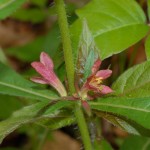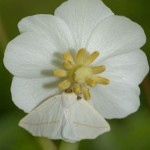Following on my last post about some of our earliest flowering spring herbs, here are images of several more to get us warmed up for the season to some.

The flowers can be almost hidden, are inconspicuously colored, and are probably pollinated by small flies.

Showy Orchis (Galearis spectabilis) inhabits rich woods and is one of our earliest flowering orchids.

Spotted Mandarin (Prosartes maculata) is quite rare in Ohio, being found only in the southernmost counties in rich woods.
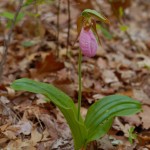
Pink Lady’s Slipper (Cypripedium acaule) is at home in acidic soils and is less common in our typical wildflower woods.
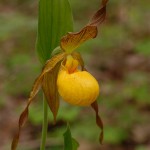
Yellow Lady’s Slipper (Cypripedium parviflorum) prefers neutral to alkaline soils and is more frequent in rich woods.

Iris verna is one of our dwarf irises, standing about 8 inches tall. It is a rare species in Ohio but becomes more common in the Appalachians.
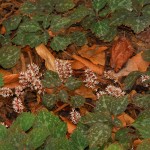
Pachysandra procumbens is the native Appalachian species in this genus; P. japonica is often planted as a groundcover.
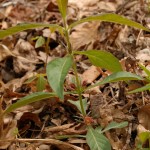
Horse Gentian (Triosteum angustifolium) is somewhat inconspicuous because the flowers are borne in leaf axils.

Mayapple (Podophyllum peltatum) is very distinctive with its large paired leaves and single white flower.
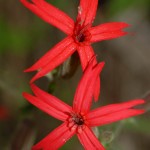
Scarlet Catchfly (Silene virginica) is one of the most intensely-colored flowers in our spring flora.
About the Author: Dr. John Freudenstein is a Professor in the Department of Evolution, Ecology and Organismal Biology and Director of the OSU Herbarium. All photos are by the author.

